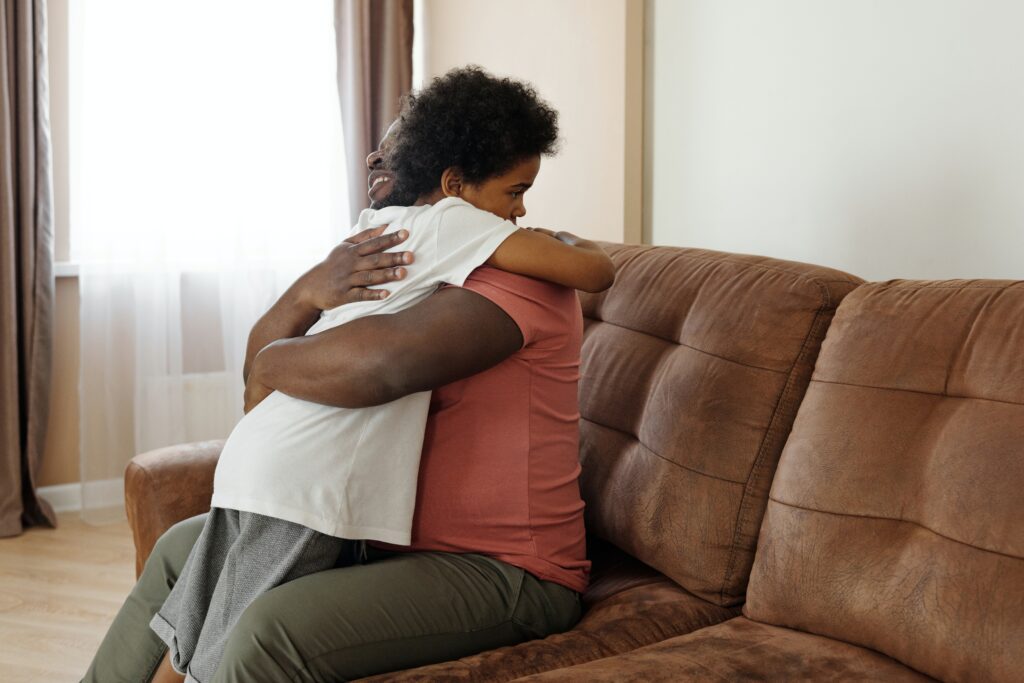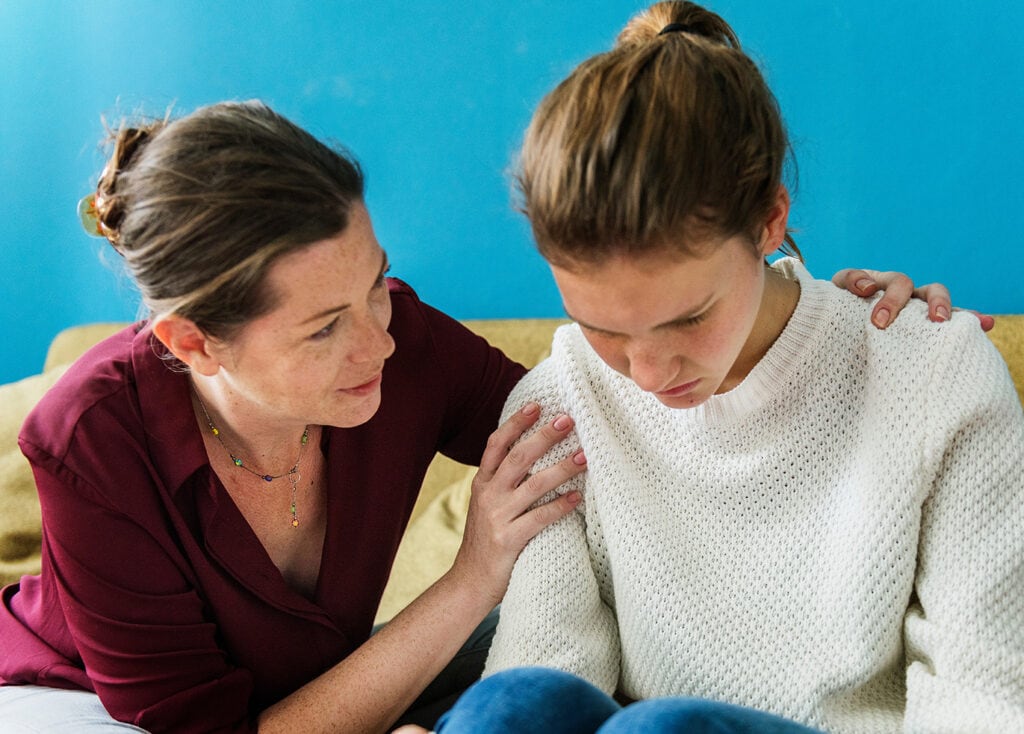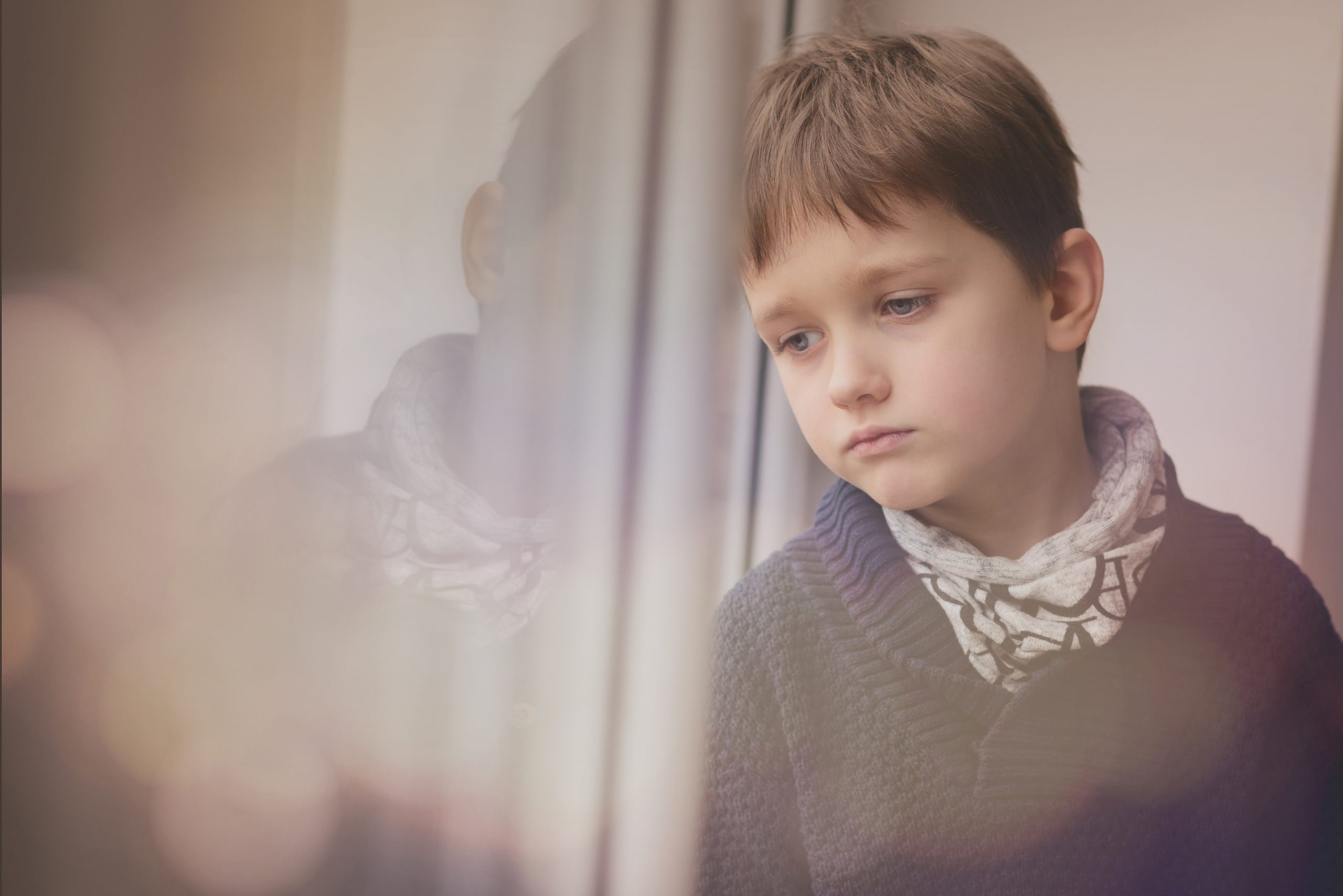Each year Time to Talk Day encourages us to open up and talk about our emotions and mental health. This year we are looking at how parents can talk to their kids about mental health. Specifically, tips for grown-ups on the tricky issue of talking to kids about emotions.
As a leading provider of counselling for children and young people, The Spark knows how important it is for parents to be able to talk to their children about emotions. In this two-part series, we will look at ways to talk to your children about emotions, what they are, how to handle them and how to start the good habit of emotional self-care.
Talking to kids about emotions – start from an early age

It can be tempting to believe children only begin to experience emotions when they start having toddler tantrums. In reality, infants experience basic emotional states such as the happiness of being held by a parent or fear when that parent is gone for a period of time.
Though it might feel silly, it is important to start talking to your child as early as possible about emotions and why they happen. This is because it begins to build their understanding of what emotions are and how they affect us. And, no matter their age, it is never too early or too late to start talking to kids about emotions.
Talking to kids about emotions – name those emotions
Kids learn by copying their parents. Therefore, when you are at home talk openly about emotions. Try to make it as much a part of your child’s daily routine as eating breakfast or a bedtime story.
Throughout your day, name and acknowledge the emotions you are feeling as well as how your child is feeling. Use simple words or phrases like “I know you are feeling angry that we need to leave now” or “I’m feeling sad because it’s been raining all day.”
Remember to let them know that it is normal to feel different emotions in different situations. As a parent, your aim is to make emotions part and parcel of everyday life and something that is regularly discussed.
Show & tell your kids how to maintain good mental health

Children will learn from your actions and experiences, so use that to your advantage. When it comes to talking to kids about emotions, think about what you do to de-stress or stay calm and, where appropriate, do a bit of ‘show and tell’.
For example, if yoga helps your mental health, get your child involved. Try some basic yoga moves with them or if they are still an infant, hold them close as you do a session. Skin-to-skin contact helps the youngest children regulate heart rate and breathing so as you begin to de-stress, so will they.
Alternatively, if guided meditation helps you to feel better, let them listen along with you. Encourage them to use their imagination to ‘picture’ the scene. Or if talking to your friends or getting exercise helps you deal with difficult emotions, give these as examples.
In part 2 of our series, we will look at how physical injuries can be a good starting point for conversations about mental health and why adults need to watch what they say around young ears.
Counselling for children and young people
The Spark is a leading provider of in-school counselling for children and young people in Scotland. Primary and Secondary schools rely on us to help their pupils deal with difficult emotions or traumatic issues.
Our professionally accredited counsellors also work individually with children and teenagers outside of school. They are available to help with issues like emotional regulation, anxiety and difficult life transitions.
To find out more, speak to one of our advisors on 0808 802 2088 or contact us online.

